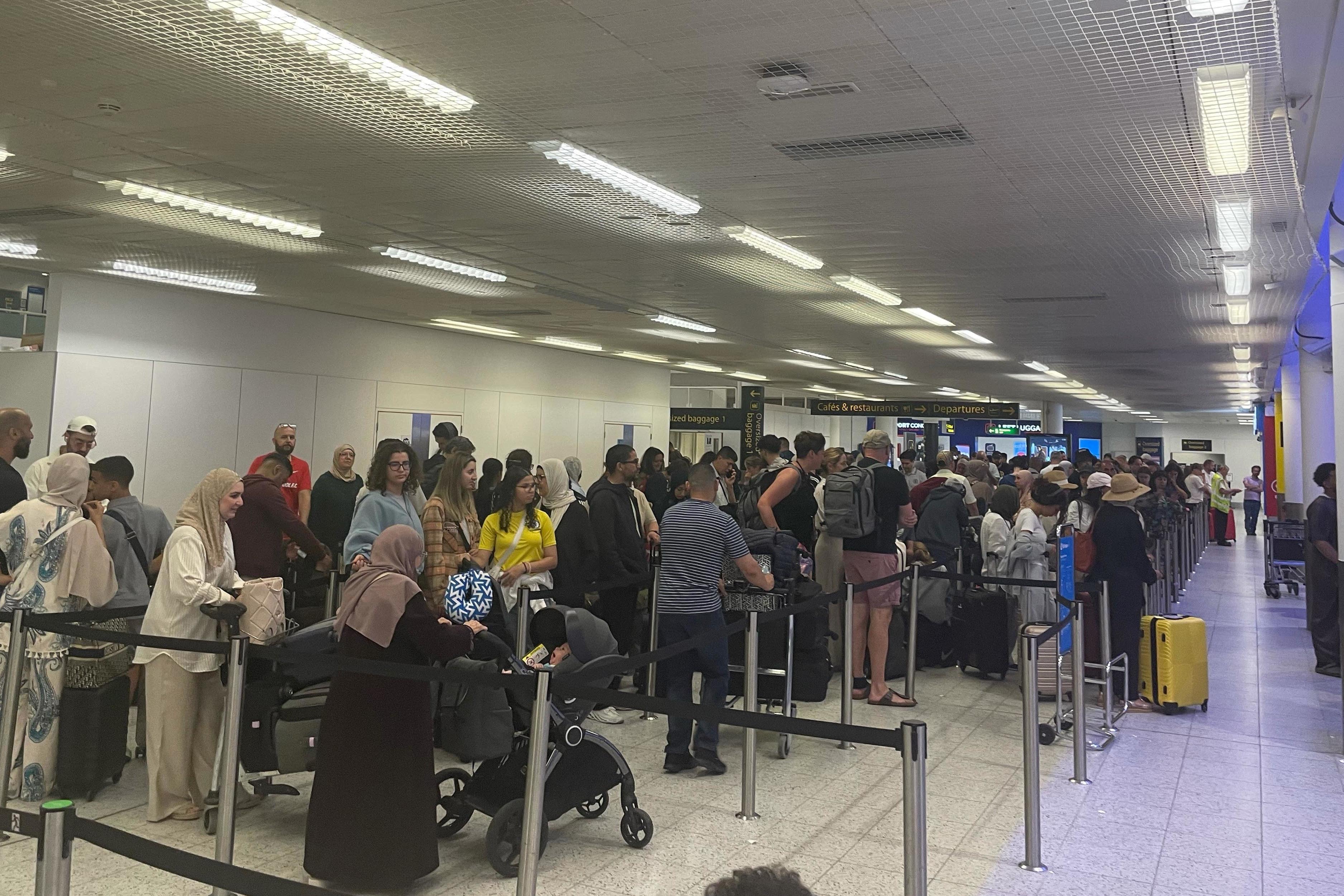Minister: Majority of sectors have mostly recovered following global IT outage
UK Government officials expect minor disruption to continue over the next couple of days.

Your support helps us to tell the story
From reproductive rights to climate change to Big Tech, The Independent is on the ground when the story is developing. Whether it's investigating the financials of Elon Musk's pro-Trump PAC or producing our latest documentary, 'The A Word', which shines a light on the American women fighting for reproductive rights, we know how important it is to parse out the facts from the messaging.
At such a critical moment in US history, we need reporters on the ground. Your donation allows us to keep sending journalists to speak to both sides of the story.
The Independent is trusted by Americans across the entire political spectrum. And unlike many other quality news outlets, we choose not to lock Americans out of our reporting and analysis with paywalls. We believe quality journalism should be available to everyone, paid for by those who can afford it.
Your support makes all the difference.Disruption caused by a global IT outage is expected to continue for “a couple of days” but the majority of sectors have “mostly recovered”, according to the Government.
Cabinet Office minister Ellie Reeves said the UK transport system is “running normally” and systems are back online for GPs, although NHS England and pharmacies have warned of “delays” and services being “slower than usual”.
Ms Reeves added “minor disruption will continue in some areas” while systems recover although officials believe this will be resolved this week.
A flawed update rolled out by cybersecurity firm CrowdStrike knocked many services offline around the world on Friday, causing flight and train cancellations and crippling some healthcare systems.
A fix was deployed for a bug in the update, which affected equipment running the Microsoft Windows operating system, as CrowdStrike chief executive George Kurtz said it would take “some time” for systems to be fully restored.
The cybersecurity firm said in a statement on Sunday night that a “significant number” of the around 8.5 million affected Windows devices were now back online and operational.
The company said it was also working on a new “opt-in technique” to speed up the fix process.
Making a statement to the House of Commons, Ms Reeves said “large parts” of the local UK healthcare system lost access to test results and appointment information, which affected mostly GP services.
She told MPs: “Tried and tested NHS contingency plans were enacted and services are expected to be operating at full capacity within the next few days.
“Small businesses without dedicated IT support systems were heavily impacted due to disruption to card-only payment systems and ATMs, with many resorting to operate with cash only while firms worked to fix their systems.
“Many firms were able to get back online quickly and the remaining are expected to restore operations this week.”
Ms Reeves said the Government would “monitor” the situation and the possible long-term impacts.
We can expect that minor disruption will continue in some areas while systems continue to recover, but my officials expect these to be resolved in the next couple of days
She added: “The majority of the sectors that were impacted have now mostly recovered. The UK transport system – aviation, rail, road, maritime – is running normally.
“NHS staff worked hard over the course of Friday and the weekend to quickly apply the fixes required and my colleagues in the Department for Health and Social Care have confirmed that systems are now back online, including for GPs.
“Their advice is that patients should continue to attend their appointments unless told not to. There may still be some delays and GPs will need to rebook appointments that could not be made during the IT outage.
“The public should continue to contact their GPs in the normal way.
“However, as IT systems are complex, we can expect that minor disruption will continue in some areas while systems continue to recover, but my officials expect these to be resolved in the next couple of days.”
Shadow Chancellor of the Duchy of Lancaster Sir Oliver Dowden asked if the Government will consider “mandatory cyber security targets” for the UK public sector, adding: “Is the Government considering obligations to ensure that infrastructure is designed to be resilient against common cause problems, such as this one?”
Nick Kaye, chairman of the association which represents independent community pharmacies in the UK, said: “As pharmacists recover from last week’s IT outage and catch up on the backlog of prescriptions, we expect service in some community pharmacies to be slower than usual today.
“Please be patient with your local pharmacy team if you are visiting them, as they may still be prioritising emergency prescriptions from their local GP surgeries as well as experiencing increased demand as services return to normal.
“As ever, community pharmacies have worked hard to provide support for those who need them during this period.”
It comes after the British Medical Association (BMA) warned on Sunday that normal GP service “cannot be resumed immediately” after the outage caused a “considerable backlog”.
The trade union for doctors said GPs will “need time to catch up from lost work over the weekend”, adding that NHS England should “make clear to patients” this is the case.
The BMA said its GP committee will continue to talk to NHS England and patient record system supplier EMIS to secure a “better system of IT back-up” to ensure the “disaster” is not repeated.